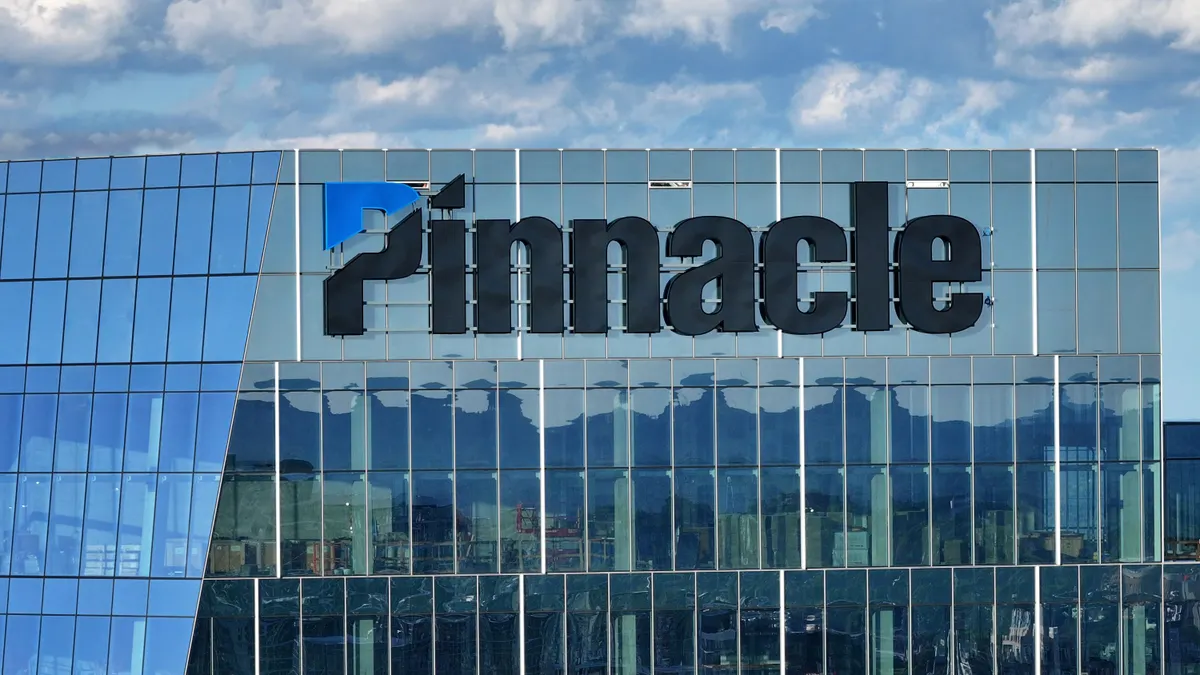Dive Brief:
- A community bank trade group is urging the Federal Deposit Insurance Corp. to exempt small banks from a special assessment to recover roughly $22.5 billion in losses to the Deposit Insurance Fund in the wake of several bank failures.
- In a Thursday letter addressed to FDIC Chairman Martin Gruenberg, Independent Community Bankers of America CEO Rebeca Romero Rainey said large banks should be on the hook for the special assessment, since they would be the main potential beneficiaries of the FDIC’s decision to backstop uninsured deposits at Silicon Valley Bank and Signature Bank, two regional lenders that collapsed last month.
- Thursday’s letter comes ahead of Tuesday’s FDIC board meeting, where board members are scheduled to discuss the DIF’s restoration plan.
Dive Insight:
“As evidenced by both post-failure auctions, large regional banks and too big to fail (TBTF) institutions are the acquirers of [SVB and Signature] — forging a path for big banks to get even bigger and reinforcing consolidation in the industry,” Romero Rainey wrote.
Last month, Raleigh, North Carolina-based First Citizens BancShares agreed to buy $72 billion of SVB’s assets at a discount of $16.5 billion, while New York Community Bank subsidiary Flagstar acquired $38.4 billion of Signature’s assets for $2.7 billion.
In an effort to stem contagion, regulators made the extraordinary decision to waive the FDIC insurance cap of $250,000 and make all of SVB and Signature’s depositors whole.
The FDIC estimates the emergency measures will cost the DIF, which is made up of fees paid by banks, roughly $22.5 billion.
Romero Rainey urged the FDIC not to include community banks in any special assessment aimed at making up that deficit.
“Community banks and their customers shouldn’t have to pay for the miscalculations and speculative practices of large financial institutions like SVB and Signature,” Romero Rainey said. “If any assessment increase is warranted, it should be imposed on the institutions that pose the most risk to the DIF — not community banks.”
The ICBA chief’s remarks come ahead of an FDIC board meeting where members are set to discuss a single agenda item: the DIF’s restoration plan.
But the regulator may already be leaning toward an assessment that relies more heavily on the nation’s big banks, according to Bloomberg, which cited unnamed sources.
And when pressed by lawmakers last month over how the agency plans to tackle the DIF’s deficit, Gruenberg assured lawmakers the regulator is “keenly sensitive to the impact on community banks.”
Meanwhile, a White House fact sheet released last month urged regulators to ensure that the costs of replenishing the DIF does not fall on community banks.
In her letter, Romero Rainey stressed that community banks do not hold a great concentration of uninsured deposits, comparing the smaller institutions to the failed regional lenders SVB and Signature, which had a “heavy reliance on uninsured deposits for funding.”
“That large, regional banks are permitted to hold significant quantities of uninsured deposits is not only a source of risk (as demonstrated by the failures of SVB and Signature) but a benefit to this group of institutions and another reason why these banks should pay significantly more for deposit insurance,” Romero Rainey said.
The failures of tech-focused SVB and Signature also highlight how over-concentration in certain industries can lead to losses as the economic environment changes, Romero Rainey added.
“By contrast, community banks operate under an entirely different business model, one that is focused on relationships with consumers and small businesses in the cities and towns they call home,” she said.













